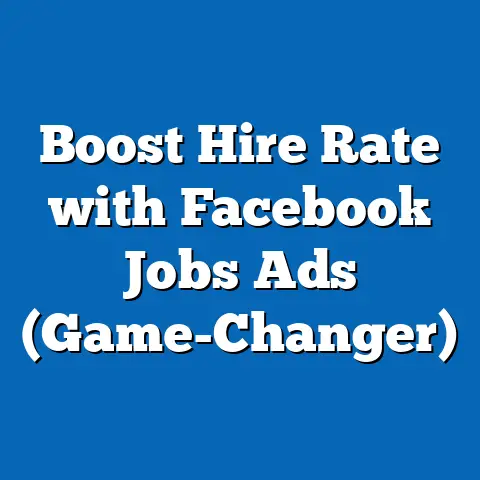Appeal Facebook Ad Suspension (Proven Strategies)
Proven Strategies to Successfully Appeal Facebook Ad Suspensions
It’s no secret that Facebook advertising is a cornerstone of many businesses’ marketing strategies.
With billions of active users, the platform offers unparalleled reach and targeting capabilities.
However, with great power comes great responsibility—and in Facebook’s case, a stringent set of advertising policies.
Ad suspensions can be incredibly frustrating, but they also present an opportunity for businesses to reassess their strategies, understand Facebook’s policies better, and ultimately, become more effective advertisers.
Understanding Facebook Ad Policies
Facebook’s advertising policies are the bedrock of its advertising ecosystem.
They’re designed to ensure a safe and positive experience for users, which in turn, benefits advertisers by maintaining a trustworthy environment.
Adhering to these policies is not just a recommendation; it’s a necessity.
Why are these policies so important?
- User Trust: Facebook prioritizes user experience.
Policies protect users from misleading, offensive, or harmful content. - Brand Reputation: Compliance ensures your brand isn’t associated with unethical or harmful advertising practices.
- Ad Performance: Ads that comply with policies are more likely to be approved and perform well.
- Account Health: Repeated violations can lead to permanent account suspensions.
Common Reasons for Ad Suspensions:
From my experience managing numerous Facebook ad campaigns, I’ve seen a few common culprits that often lead to suspensions:
- Misleading or Deceptive Content: This includes false claims, exaggerated promises, or bait-and-switch tactics.
For instance, an ad promising “instant weight loss” without any effort is a clear violation. - Inappropriate Imagery or Language: Ads with sexually suggestive content, violence, or hate speech are strictly prohibited.
Even subtle implications can trigger a suspension. - Violating Community Standards: This encompasses a wide range of issues, including promoting discrimination, inciting violence, or spreading misinformation.
- Personal Attributes: Ads that directly address or imply knowledge of a person’s race, ethnic origin, religion, beliefs, age, sexual orientation, gender identity, disability, or medical condition are a no-go.
- Prohibited Content: This includes ads for illegal products or services, tobacco products, weapons, and certain health supplements.
- Non-Functional Landing Pages: If your ad leads to a broken link, a page with errors, or a page that doesn’t match the ad’s promise, it’s likely to be suspended.
Facebook’s Review Process:
Facebook employs a combination of automated systems and human reviewers to assess ads.
When you submit an ad, it goes through a review process to ensure it complies with the policies.
This process typically takes a few hours, but it can sometimes take longer, especially during peak times.
Types of Violations:
- Minor Violations: These might result in a warning or a temporary ad disapproval.
- Serious Violations: These can lead to ad suspensions, account restrictions, or even permanent account bans.
Takeaway: Knowing these policies inside and out is crucial for crafting compliant ads.
It’s like knowing the rules of a game before you play—it increases your chances of success and minimizes the risk of penalties.
The Initial Steps to Take After Suspension
Okay, so you’ve received the dreaded notification: your ad has been suspended.
Don’t panic!
The first few steps you take are crucial for a successful appeal.
1. Check Your Email Notifications:
Facebook usually sends an email detailing the reason for the suspension.
This email often contains specific information about the policy violation and instructions on how to appeal.
Make sure to check your spam or promotions folder if you don’t see it in your inbox.
2. Access the Ads Manager:
Log into your Facebook Ads Manager and navigate to the “Account Quality” section.
Here, you’ll find a comprehensive overview of your account’s status, including any ad suspensions, policy violations, and appeal options.
3. Review the Ad Status and Reason for Suspension:
Within the Ads Manager, you can review the specific ad that was suspended and the reason provided by Facebook.
Pay close attention to the details—this will guide your appeal strategy.
4. Gather Documentation and Evidence:
This is where preparation becomes key.
Collect all relevant documentation and evidence related to the suspended ad.
This might include:
- Screenshots of the Ad: Capture the ad creative, ad copy, and targeting settings.
- Ad Copy: Save the exact text used in the ad.
- Landing Page Content: Take screenshots of the landing page the ad directed to.
- Campaign Goals: Document the intended purpose of the ad and how it aligns with Facebook’s policies.
- Any Relevant Disclaimers or Disclosures: If your ad contains any disclaimers or disclosures, make sure to include them.
Why is this so important?
Having this information readily available will not only help you understand the suspension better but also strengthen your appeal.
It shows Facebook that you’re taking the issue seriously and are prepared to address their concerns.
My Experience:
I once had an ad suspended for “misleading claims” because it promoted a software solution that automated a specific task.
The ad copy used phrases like “effortlessly automate” and “save hours of work.” While the software did exactly that, Facebook’s algorithm flagged it as potentially misleading.
To appeal, I gathered screenshots of the software in action, testimonials from satisfied customers, and a detailed explanation of how the software worked.
I also revised the ad copy to be more specific and less hyperbolic.
This evidence helped me demonstrate that the ad’s claims were accurate and supported by real-world results.
Takeaway: Immediate action and thorough documentation are essential when dealing with ad suspensions.
The more prepared you are, the better your chances of a successful appeal.
Crafting a Compelling Appeal
The appeal process is your opportunity to present your case to Facebook and explain why you believe the suspension was unwarranted or how you’ve rectified any issues.
A well-crafted appeal can make all the difference.
Step-by-Step Guide to Writing an Effective Appeal:
Step 1: Acknowledge the Suspension and Express Understanding:
Start by acknowledging the suspension and demonstrating that you understand Facebook’s advertising policies.
This shows that you’re taking the issue seriously and are willing to work within their guidelines.
Example:
“Dear Facebook Ads Team,
I am writing to appeal the suspension of ad [Ad ID].
I understand the importance of adhering to Facebook’s advertising policies and I appreciate the efforts you take to ensure a safe and positive user experience.”
Step 2: Clearly State Your Case:
Explain why you believe the suspension was a mistake or how you’ve corrected the issues.
Be specific and provide context.
Example:
“I believe the suspension of ad [Ad ID] was unwarranted because [explain your reasoning].
The ad promotes [product/service] and is intended to [explain the ad’s purpose].
I have reviewed the ad copy and landing page and have made the following changes to ensure compliance with Facebook’s policies:
- [Specific change 1]
- [Specific change 2]
- [Specific change 3]”
Step 3: Provide Supporting Documentation and Evidence:
This is where your preparation pays off.
Include all relevant documentation and evidence to support your claims.
Example:
“To support my appeal, I have attached the following documentation:
- Screenshots of the revised ad copy and landing page
- Testimonials from satisfied customers
- A detailed explanation of how the product/service works
- Any relevant disclaimers or disclosures”
Step 4: Maintain a Professional Tone:
Throughout the appeal, maintain a professional and respectful tone.
Avoid confrontational language or accusatory statements.
Remember, you’re trying to persuade Facebook to reconsider their decision.
Example:
“I am confident that the revised ad and supporting documentation demonstrate my commitment to complying with Facebook’s advertising policies.
I respectfully request that you review my appeal and reinstate the ad.”
Key Considerations:
- Be Concise: Keep your appeal clear and to the point.
Avoid unnecessary details or tangents. - Be Honest: Don’t try to hide or downplay any potential violations. Transparency is key.
- Be Patient: The review process can take time.
Avoid repeatedly contacting Facebook or submitting multiple appeals.
My Experience:
I once had an ad suspended for promoting a financial product that Facebook deemed “potentially misleading.” The ad offered advice on how to save money and invest wisely.
While the advice was sound, Facebook’s algorithm flagged it as potentially exploiting users’ financial vulnerabilities.
To appeal, I provided detailed information about the financial product, including its regulatory status, risk disclosures, and intended audience.
I also revised the ad copy to be more transparent and less sensational.
This helped me demonstrate that the ad was not intended to mislead or exploit users.
Takeaway: A well-crafted appeal is your best chance of getting your ad reinstated.
Be clear, concise, and professional, and provide as much supporting documentation as possible.
Utilizing Facebook’s Resources and Support
Facebook offers a wealth of resources and support channels for advertisers.
Knowing how to effectively utilize these resources can be invaluable when dealing with ad suspensions.
1. Facebook Help Center:
The Facebook Help Center is a comprehensive repository of information on a wide range of topics, including advertising policies, account management, and troubleshooting.
It’s a great place to start when you have questions or need assistance.
How to Use the Help Center:
- Search: Use the search bar to find answers to specific questions.
- Browse: Explore the various categories and topics to learn more about Facebook’s advertising policies and best practices.
- Troubleshooting Guides: Follow the step-by-step guides to resolve common issues.
2. Business Support:
Facebook’s Business Support team provides personalized assistance to advertisers.
You can contact them through various channels, including email, chat, and phone.
How to Contact Business Support:
- Navigate to the “Help” section in the Ads Manager.
- Select “Contact Support.”
- Choose the appropriate support channel based on your issue.
3. Community Forums:
Facebook’s advertising community forums are a valuable resource for learning from other advertisers and sharing your experiences.
You can ask questions, provide answers, and connect with other professionals in the field.
How to Participate in the Forums:
- Join relevant groups and communities.
- Ask questions and share your experiences.
- Provide helpful advice and support to other members.
4. Facebook Blueprint:
Facebook Blueprint is a free online learning platform that offers courses on a wide range of advertising topics.
These courses can help you improve your skills and knowledge, and stay up-to-date on the latest trends and best practices.
Benefits of Facebook Blueprint:
- Learn from industry experts.
- Gain a deeper understanding of Facebook’s advertising policies and tools.
- Earn certifications to demonstrate your expertise.
My Experience:
I once encountered a complex issue with a Facebook ad campaign that I couldn’t resolve on my own.
I reached out to Facebook Business Support and was connected with a knowledgeable representative who helped me diagnose the problem and implement a solution.
Their expertise and guidance were invaluable in getting the campaign back on track.
Takeaway: Don’t hesitate to leverage Facebook’s resources and support channels when you need assistance.
They’re there to help you succeed.
Learning from the Experience
An ad suspension, while frustrating, is also a valuable learning opportunity.
It’s a chance to reflect on your advertising practices, identify areas for improvement, and strengthen your understanding of Facebook’s policies.
1. Analyze Past Ad Campaigns:
Take a close look at your past ad campaigns to identify any potential pitfalls that could lead to future suspensions.
Ask yourself:
- Did any of my ads violate Facebook’s advertising policies?
- Were my ad copy and landing pages clear and accurate?
- Did I target the right audience?
- Did I comply with all relevant regulations and laws?
2. Stay Updated on Facebook’s Evolving Policies:
Facebook’s advertising policies are constantly evolving.
Make sure to stay informed about the latest changes and updates.
You can subscribe to Facebook’s advertising blog, follow industry experts on social media, and participate in relevant online communities.
3. Document Your Learnings and Adjustments:
Keep a record of your learnings and adjustments.
This will help you avoid making the same mistakes in the future and ensure that your advertising strategies are always compliant.
4. Foster Long-Term Success:
By learning from your experiences and staying informed about Facebook’s policies, you can foster long-term success with your advertising efforts.
You’ll be able to create more effective and compliant ads that resonate with your target audience and drive results.
My Experience:
After experiencing a few ad suspensions early in my career, I realized the importance of proactive compliance.
I began to meticulously review Facebook’s advertising policies before launching any new campaigns.
I also started using a checklist to ensure that all my ads met the requirements.
This proactive approach significantly reduced the risk of future suspensions and improved the overall performance of my campaigns.
Takeaway: Ad suspensions are not setbacks; they’re opportunities for growth and improvement.
By learning from your experiences and staying informed about Facebook’s policies, you can become a more effective and compliant advertiser.
Conclusion
Navigating the world of Facebook advertising can be challenging, but with the right strategies and a commitment to compliance, you can achieve your marketing goals and drive business results.
Ad suspensions are a part of the process, but they don’t have to be a roadblock.
By understanding Facebook’s advertising policies, taking immediate action after a suspension, crafting a compelling appeal, utilizing Facebook’s resources and support, and learning from the experience, you can overcome these challenges and emerge as a more effective and resilient advertiser.
Remember, just like cleaning a cluttered room, appealing a Facebook ad suspension requires a systematic approach and a willingness to put in the effort.
But the end result—a clean, organized space—is well worth it.
Similarly, a successful appeal can restore your advertising capabilities and bring your brand’s voice back to your audience.
So, embrace the challenge, learn from your experiences, and keep moving forward.
Your success in the world of Facebook advertising depends on it.






